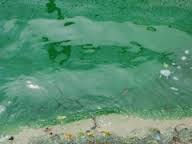
Breaking News
 Christmas Truce of 1914, World War I - For Sharing, For Peace
Christmas Truce of 1914, World War I - For Sharing, For Peace
 The Roots of Collectivist Thinking
The Roots of Collectivist Thinking
 What Would Happen if a Major Bank Collapsed Tomorrow?
What Would Happen if a Major Bank Collapsed Tomorrow?
Top Tech News
 Travel gadget promises to dry and iron your clothes – totally hands-free
Travel gadget promises to dry and iron your clothes – totally hands-free
 Perfect Aircrete, Kitchen Ingredients.
Perfect Aircrete, Kitchen Ingredients.
 Futuristic pixel-raising display lets you feel what's onscreen
Futuristic pixel-raising display lets you feel what's onscreen
 Cutting-Edge Facility Generates Pure Water and Hydrogen Fuel from Seawater for Mere Pennies
Cutting-Edge Facility Generates Pure Water and Hydrogen Fuel from Seawater for Mere Pennies
 This tiny dev board is packed with features for ambitious makers
This tiny dev board is packed with features for ambitious makers
 Scientists Discover Gel to Regrow Tooth Enamel
Scientists Discover Gel to Regrow Tooth Enamel
 Vitamin C and Dandelion Root Killing Cancer Cells -- as Former CDC Director Calls for COVID-19...
Vitamin C and Dandelion Root Killing Cancer Cells -- as Former CDC Director Calls for COVID-19...
 Galactic Brain: US firm plans space-based data centers, power grid to challenge China
Galactic Brain: US firm plans space-based data centers, power grid to challenge China
 A microbial cleanup for glyphosate just earned a patent. Here's why that matters
A microbial cleanup for glyphosate just earned a patent. Here's why that matters
 Japan Breaks Internet Speed Record with 5 Million Times Faster Data Transfer
Japan Breaks Internet Speed Record with 5 Million Times Faster Data Transfer
Natural chemical found in blue-green algae found to destroy cancer cells ...

(NaturalNews) Scientists from Oregon State University have discovered that a compound found in algae can fight two of the most aggressive types of cancer out there: triple negative breast cancer and brain tumors. The findings were presented at the Experimental Biology 2016 meeting last month in San Diego.
The discovery was made by Oregon State's Dr. Kerry McPhail, who actually found the compound while scuba diving in the Coiba National Park in Panama eight years ago. She collected the blue-green algae known as cyanobacteria on the dive, and found that it contained at least three different species of algae that grow on rocks situated in fast-moving water.
Blue-green algae contains a compound known as coibamide A, and it turns out that it can prevent cancer cells from communicating with blood vessels and other types of cells, thereby killing the diseased cells.
After isolating the compound coibamide A, Dr. McPhail screened it for anti-cancer activity and discovered a novel pattern that sets it apart from every known type of treatment currently available.
The study's lead author, Dr. Jane Ishmael, acknowledged that nature has always been a source for drug design, but emphasized that marine environments are still a largely unexplored frontier.
She said: "We think that with this compound, nature has already found a way to target some of the specific proteins that are relevant to the growth of tumors."
The discovery could lead to the development of new treatments to help fight these aggressive cancers and save lives. While the compound has demonstrated the ability to kill off a number of different cancer cells, the scientists said they wanted to focus on the types that do not currently have good pharmacological treatment options.
Glioblastomas have traditionally been very difficult to treat because they don't respond well to chemotherapy drugs and they grow quickly. Another obstacle in treating this particular problem is that the agent in question needs to get across the blood-brain barrier, and the scientists are looking into whether coibamide A has this capability. In animal models, it "significantly reduced" the size of such tumors.
The substance is so promising that scientists at Kyoto University in Japan have already developed a way to produce it synthetically to help facilitate research and develop treatments faster.
Dr. Ishmael added: "So far, there isn't a drug in clinical use or in any clinical trials that works in this way. We're using it to try to reveal a new pathway to trigger cell death in these cancer cells that have traditionally been considered very resistant to cell death."
Similar communities of algae have been found off the coast of South Africa and in the Red Sea.
Blue-green algae, and its spirulina variety in particular, is rich in Vitamin A, B-complex, C, and E, along with calcium, iron and magnesium, all of which it contains in its natural form. Spirulina has long been touted as a natural anti-cancer agent, and it is considered one of the world's best superfoods on account of its vast and highly concentrated nutritional content. It's considered a great source of beta-carotene and lutein, and it has more protein per gram than fish, poultry, beef or soybeans. It also boasts a balanced spectrum of amino acids, the essential fatty acid GLA, and a tremendous amount of cleansing chlorophyll.

 The State's Last Stand
The State's Last Stand


